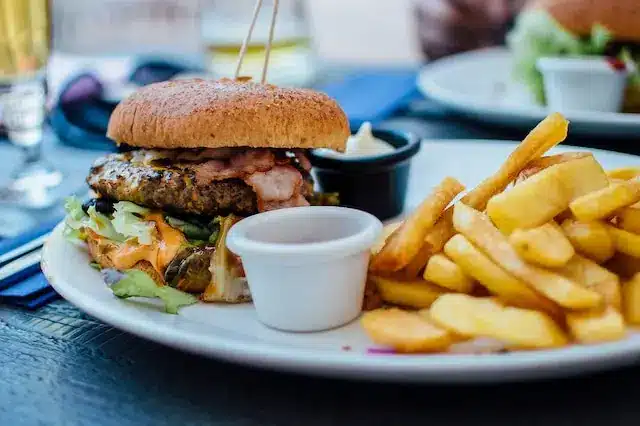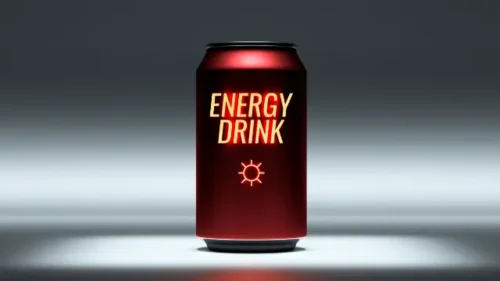
9 Most Unhealthy Foods That Are Bad for Your Health
In today’s fast-paced society, where convenience sometimes takes precedence over health, we must pay attention to our food choices. We all know that food is necessary for survival and nutrition, but not all food items are sustainably produced. Some most unhealthy foods can drastically disrupt our health and cause various health problems if we consume them excessively or make them a regular diet component.
Given this, we’ll discuss nine typical foods and beverages commonly acknowledged as most unhealthy foods and why limiting our consumption is a good idea. By understanding how they impact our bodies, we can make smarter choices and prioritize our long-term health and vitality.
1. Alcohol
While an occasional drink of wine with dinner or a casual beer with friends might not harm most people, excessive alcohol consumption is another matter. It’s linked to several health problems, including liver disease, heart disease, certain cancer types, and mental health issues. One lesser-known but significant concern for women is the potential link between alcohol and fibrocystic breast disease. Alcohol consumption may heighten the risks of fibrocystic breast changes, especially among young people aged 18-22.
This condition, characterized by lumpy or rope-like breast tissue, is benign and impacts numerous women globally. It’s usually harmless but can cause discomfort, tenderness, and swelling. Excessive alcohol consumption can exacerbate these symptoms due to its role in raising estrogen levels.
So, if you know someone undergoing Fibrocystic Breast Disease Treatment, advise them to consider moderating their alcohol consumption.
2. Processed Meats
Who doesn’t love a Sunday morning breakfast complete with crispy bacon or a hot dog at a baseball game? Most unhealthy foods processed meats have a certain allure, but they’re notorious health offenders. Often loaded with salt, unhealthy fats, and preservatives called nitrates, these meats can heighten your risk of heart conditions, type 2 diabetes, and even certain types of cancer. Besides, too much salt can make your body hold on to water, causing bloating and water retention.
Of course, a piece of bacon now and then won’t harm you but try to limit it to special occasions. Opt for lean cuts of unprocessed meats such as chicken breast, turkey, or fish for everyday protein needs. These options provide essential nutrients without unhealthy additives. Additionally, consider incorporating plant-based protein sources like legumes, tofu, or tempeh into your diet. Not only are they delicious, but they also offer health benefits.
3. Sugary Drinks
The refreshing fizz of a cold soda on a hot day might be tempting, but the health costs are high. They’re packed with added sugars which can lead to weight gain and tooth decay and escalate the risks of type 2 diabetes. And to make matters worse, they can trick your brain into craving more calories than necessary. Even a 12-ounce can of soda contains a whopping eight teaspoons of sugar, way above the daily recommendation of 6 teaspoons for women and 9 for men.
To avoid these risks, quench your thirst with healthier options like water, herbal teas, or freshly squeezed juices without added sugars. Infusing water with slices of fruits or herbs can add natural flavors without the added sugar.
4. White Bread and Refined Grains
While white bread, white rice, and pasta are staples in many households, they are made from refined wheat, which misses out on fiber and essential nutrients in whole grains. Its high-glycemic index can cause a rapid spike in blood sugar and insulin levels, leaving you feeling hungry soon after. Regular munching on white bread could lead to weight gain and other metabolic disorders.
Try switching to whole grain alternatives like whole wheat bread, brown rice, and quinoa to add fiber, vitamins, and minerals to your diet. These alternatives help stabilize blood sugar levels, promote satiety, and provide a steady release of energy.
5. Breakfast Cereals
Breakfast cereals may seem like a quick and easy breakfast option but beware since many are loaded with added sugars and offer little to no protein and fiber. It means they won’t keep you feeling full for very long and can even contribute to weight gain over time. Always check the label before you buy, and look for cereals high in fiber and low in added sugars.
Start your day with a bowl of oats or a protein-packed egg dish instead. Add fruits for natural sweetness and a protein punch to enhance the taste.
6. Industrial Vegetable Oils
Cooking with industrial vegetable oils like soybean and corn oil might seem harmless, but they’re often heavily processed and high in omega-6 fatty acids with little to no omega-3s. This imbalance could ignite inflammation, increasing the risk of cardiovascular disease. Why not try olive oil, coconut oil, or avocado oil? These are rich in heart-healthy monounsaturated fats and carry robust flavors that can elevate your dishes.
7. Trans Fats
Trans fats are like the secret agents of the food world. They sneak into processed foods like fast food, snacks, fried items, and baked goods, wreaking havoc on your body. They elevate bad (LDL) cholesterol, lower good (HDL) cholesterol, and increase your risk of heart disease, stroke, and type 2 diabetes.
Instead of consuming trans fats, choose healthier cooking methods like baking, grilling, or steaming. Opt for foods prepared with healthier fats like olive oil, avocado oil, or coconut oil. Regarding snacks, go for air-popped popcorn, roasted nuts, or homemade baked goods using healthier alternatives like whole wheat flour or oats. Lastly, read food labels carefully and avoid products containing partially hydrogenated oils.
8. Fast Foods
Fast food might be convenient and tasty, but they’re often loaded with calories, unhealthy fats, sugars, and sodium. Consistently indulging in these meals can lead to weight gain and high blood pressure, not to mention they often lack vital nutrients and contain unhealthy additives.
Instead of relying on the drive-thru, take charge of your nutrition by preparing homemade meals using fresh ingredients. It doesn’t have to be difficult; straightforward dishes like stir-fries, grilled chicken wraps, or salads stuffed with vegetables can be tasty, convenient, and healthy. When dining out, look for healthier alternatives like salads, grilled or baked foods, or select restaurants offering a more nutritious menu.
9. High-Caffeine Energy Drinks
Although the heightened caffeine content in energy drinks may provide an immediate boost, it can also lead to heart palpitations, high blood pressure, and even nausea. When coupled with alcohol or ingested in excessive quantities, they are extremely harmful. Why not opt for alternatives like a healthy smoothie or a cup of green tea?
Conclusion
A healthy diet doesn’t require you to forgo any items completely. Balance, portion management, and making wise decisions are key. After all, the goal is to enjoy what you eat while caring about your health simultaneously. Most unhealthy foods items might satiate your hunger quickly but can also cause chronic diseases. So, watch what you consume and be mindful of your eating patterns.










